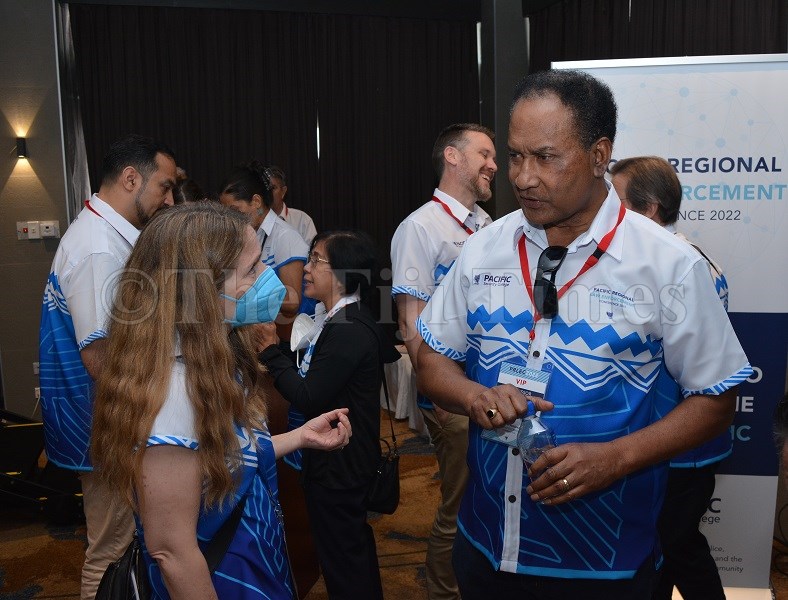Unless an alternative is provided, then criminal activities may not be the option which vulnerable youth would grab, says award-winning political sociologist and global interdisciplinary scholar Professor Steven Ratuva.
Prof Ratuva, while speaking at the inaugural Pacific regional law enforcement conference in Nadi, said vulnerable youths who have a low sense of belonging in communities easily gravitated towards criminal activities.
He said there were major cultural impacts in terms of transnational crime in our communities.
Prof Ratuva said young people were attracted to criminal activities such as drug trafficking because it was considered “easy money”.
“In a situation where there is poverty, in a situation where there’s marginalisation where development has enriched people in various parts of the Pacific, then people are looking for alternatives,” he said.
“So if you provide an alternative, then the criminal activities may not be the alternative which they would grab.”
Prof Ratuva said education systems needed to be reformed to address the issues of vulnerability of youths in the Pacific.
“Our education system not only in the Pacific, but a lot of education systems in the world have tried to reform the education system, just to make sure they address the issue of vulnerability.
“Because when you fail, you consider yourself to be a failure invariable and you look for alternative ways of dealing with things so it’s a whole of society approach where the communities in different ways can address particular aspects of what they can do.
“It’s not an easy exercise, because it has to do with changing people’s minds, people’s behaviour and people’s expectations when people’s expectations are not met, then they begin to look for options.
“For instance, in the Pacific, we can go only as far as what we can do in terms of keeping the youth engaged, whether it’s in rugby, whether it’s to do with meaningful economic activities, whether it’s to do with engaging in productive social activities to make sure that they feel that a sense of identity. Often they feel empowered.
“The moment they feel disempowered, they feel isolated, they feel vulnerable, that is when they begin to look for options and the option or the easiest option is a high risk, but high reward criminal activities.”
Head of the Office of the Pacific Department of Foreign Affairs and Trade (DFAT) Ewen McDonald said transnational organised crime entities have become increasingly well-financed and sophisticated, whether it’s drug trafficking, people smuggling, environmental crimes, or cybercrime.
He said crime syndicates operated with no regard to traditional land and sea borders. Mr McDonald said the region’s strategic circumstances would present challenges for law enforcement over the next few years.
“These challenges also require new capabilities regionally to our law enforcement and border security institutions, including in situational awareness and response, the capability within each nation’s law enforcement agencies is important to us all. Ensuring collective strength across the board,” he said.


